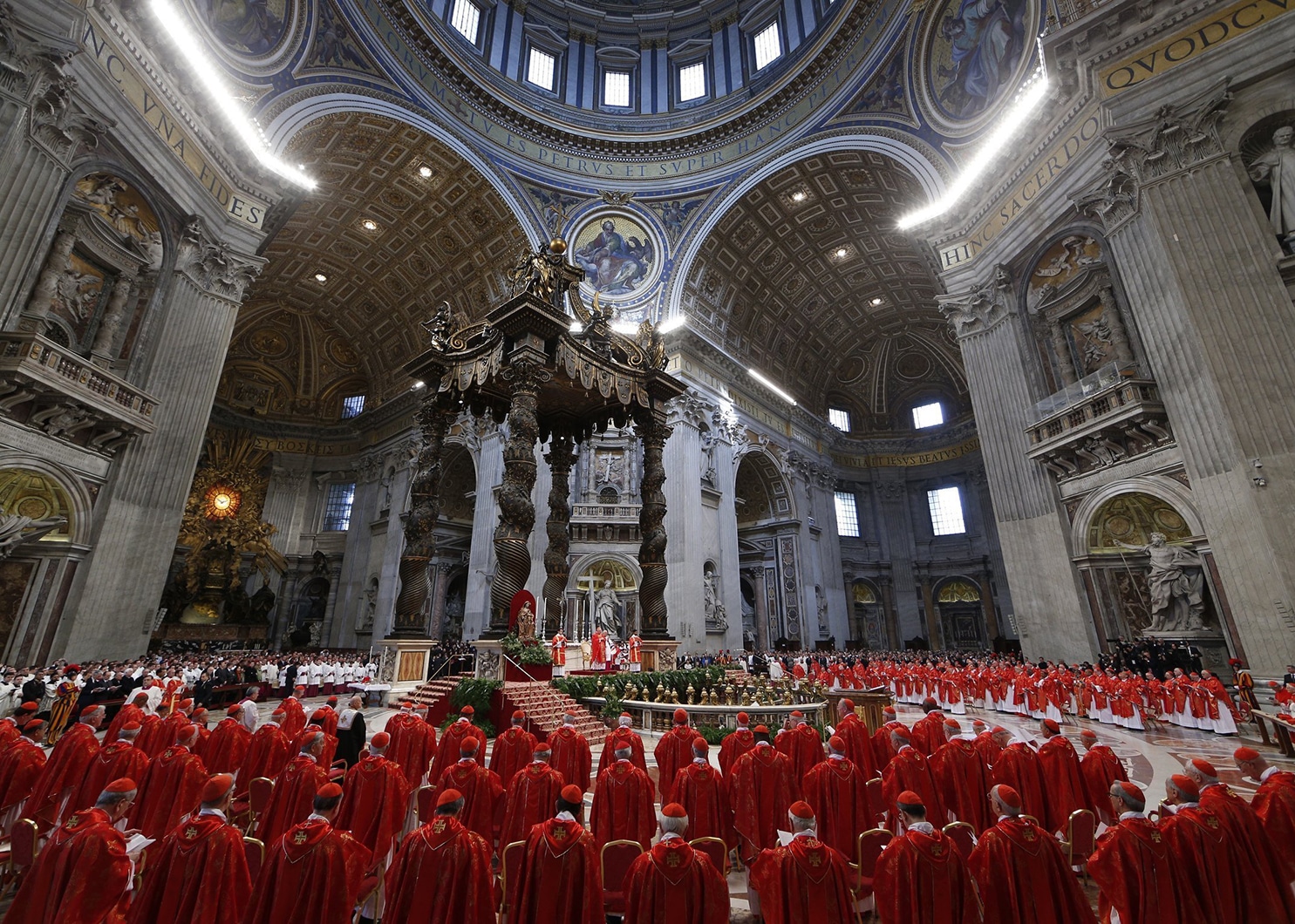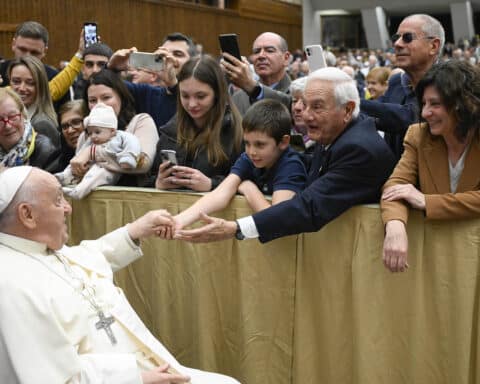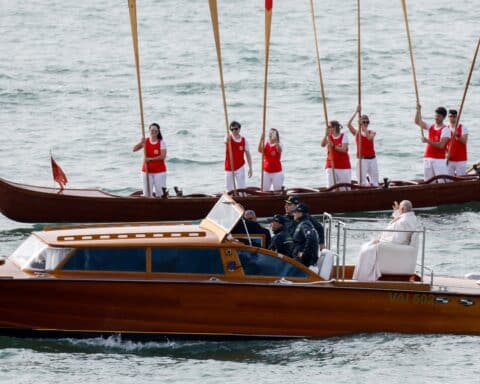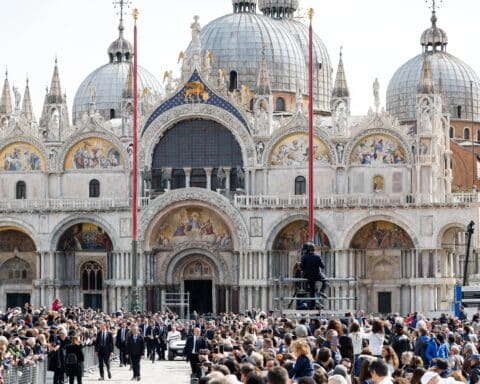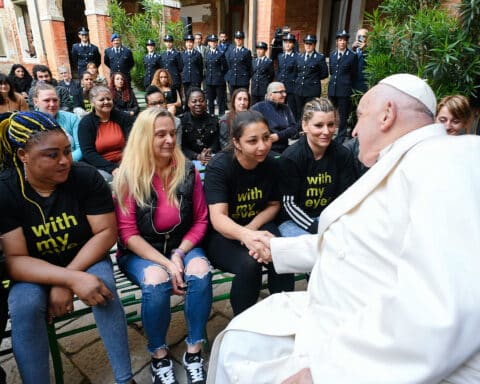VATICAN CITY (CNS) — A group of cardinals asked Cardinal Jorge Mario Bergoglio in-depth questions about liberation theology and its political consequences before deciding to elect him pope in 2013, Pope Francis said.
In the book-length interview, “El Sucesor” (“The Succesor”), published in Spain April 3, the pope said he “did not realize” that he was a serious candidate for the papacy in 2013, but that he began to put together the pieces of a campaign to elect him after a group of cardinals asked him about liberation theology — a theological approach developed in Latin America that preaches a “preferential option for the poor” and seeks to free people from injustice and sin.
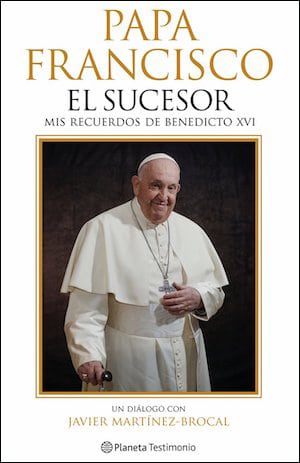
Pros and cons of liberation theology
In the interview, Pope Francis told Spanish journalist Javier Martínez-Brocal that a group of European cardinals “badgered” him with questions during a lunch between voting sessions March 13, 2013, only hours before he would walk out onto the balcony of St. Peter’s Basilica and present himself to the world as the newly elected pope.
“They asked me things about Latin America,” he said. “They wanted me to talk to them about the political aspect of liberation theology, the supposed political deviation of that theology.”
As archbishop of Buenos Aires, Cardinal Bergoglio embraced the preferential option for the poor promoted by liberation theology, often tending to the Argentine capital’s poorest neighborhoods and sending priests to work in those areas, but he criticized liberation theology’s “recourse to Marxist hermeneutics.”
His conversation with the cardinals appeared to calm their nerves, since Cardinal Bergoglio was elected pope that evening.
Pope Francis said that despite earning votes in the conclave’s ballots the evening of March 12 and the morning of March 13, “I interpreted them as ‘placeholder votes,'” or votes cast by electors waiting to see who emerges as clear candidates before voting for their real choice.
He recalled that several cardinals went to speak with Cardinal Angelo Scola of Milan, a candidate widely reported as a papal favorite by the media, and shared that he later learned Cardinal Scola told them to “vote for Bergoglio.”
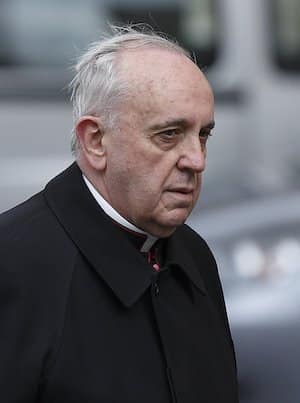
No doubts about becoming pope
The pope also said that he had not written down the speech he made to other cardinals in pre-conclave meetings, in which he condemned the idea of a “self-referential church” which traps Jesus inside and prevents evangelization, but rather that it came to him in a car ride conversation with another cardinal while heading to a meeting.
Pope Francis said that he did not have doubts over whether to accept becoming pope after being elected, and he dismissed rumors that he had considered choosing the name John instead of Francis.
After the election, the pope said, he turned down wearing the red shoes typical of a pope “because I use orthopedic shoes.” He also turned down a ring he was offered and wanted to keep his own pectoral cross rather than wear a jeweled one.
Dressing in plain white without the red papal mozzetta — a cape-like vestment that is a sign of authority — “seemed to me the most simple,” he said. But he added that “it was not a premeditated decision, everything happened very naturally.”
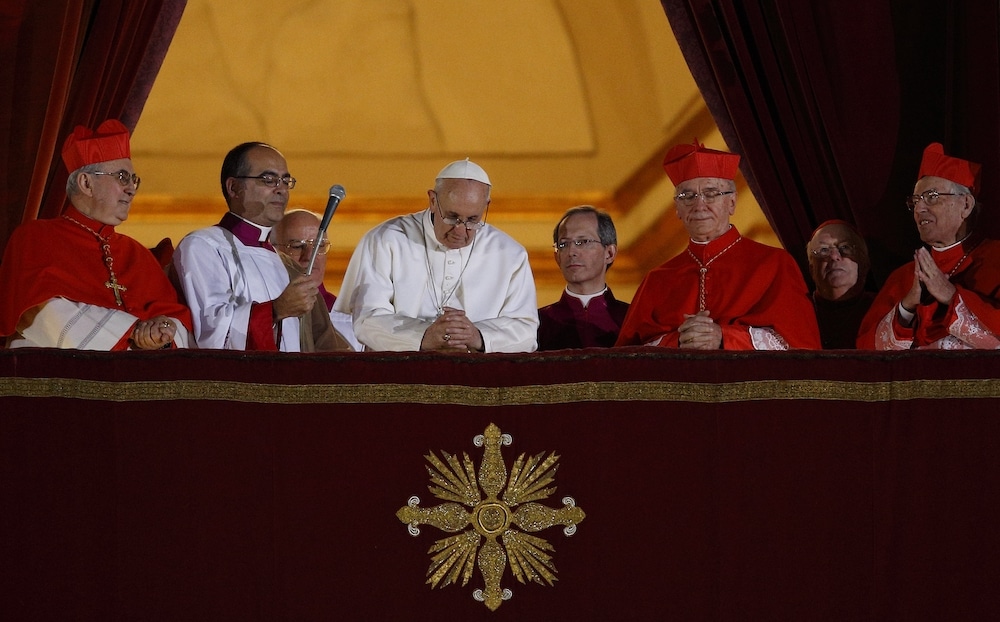
After leaving the sacristy of the Sistine Chapel, he said, he walked to greet Cardinal Ivan Dias of Bombay and stumbled over an unseen step. “The first misstep of the pope,” he joked to the nearby cardinals who laughed in response.
The pope said that when stepping out onto the balcony of St. Peter’s Basilica he accidentally broke protocol by not walking out alongside the camerlengo, Cardinal Tarcisio Bertone, but with two other cardinals instead. And he noted that he had not thought about what he would say to the throngs of people waiting to hear the first words of the new pope in St. Peter’s Square, but “it just came out of me: ‘Brothers and sisters, good evening!'”

